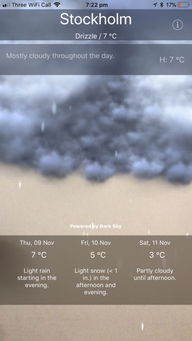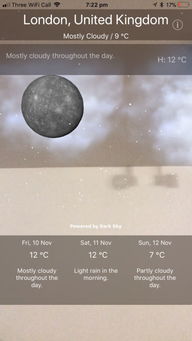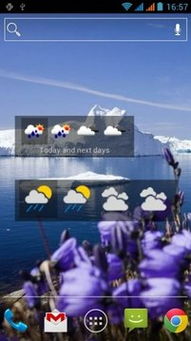Bentonville AR Weather: A Comprehensive Guide
Bentonville, Arkansas, is a city that boasts a diverse climate, offering residents and visitors a unique experience throughout the year. Whether you’re planning a visit or simply curious about the weather in Bentonville, this detailed guide will provide you with all the information you need to know.
Seasonal Weather Patterns

The weather in Bentonville varies significantly throughout the year, with distinct patterns that define each season.
| Season | Temperature Range (掳F) | Monthly Precipitation (inches) |
|---|---|---|
| Winter | 30-50 | 2.5 |
| Spring | 50-80 | 4.5 |
| Summer | 70-100 | 5.5 |
| Autumn | 50-70 | 4.0 |
Winter in Bentonville is characterized by mild temperatures, with an average high of 50掳F and a low of 30掳F. Snowfall is rare, with an average of 2.5 inches of precipitation per month. Spring brings warmer temperatures, with an average high of 70掳F and a low of 50掳F. Precipitation increases to 4.5 inches per month. Summer is the warmest season, with average highs of 90掳F and lows of 70掳F. Precipitation reaches its peak during this season, averaging 5.5 inches per month. Autumn is a transitional season, with temperatures ranging from 50掳F to 70掳F and an average of 4.0 inches of precipitation per month.
Climate and Weather Conditions

Bentonville experiences a humid subtropical climate, which means it has hot, humid summers and mild winters. The city is located in the Ozark Plateau, which can influence weather patterns and contribute to the diverse climate.
One notable feature of Bentonville’s weather is its humidity levels. During the summer months, humidity can reach 90% or higher, making it feel even warmer. However, the city’s proximity to the Ozarks helps to moderate temperatures, preventing extreme heat and cold.
Another important factor to consider is the city’s location near the Arkansas River. This proximity can lead to occasional flooding during heavy rainfall events, particularly in the spring and summer months.
Historical Weather Data

Looking at historical weather data can provide valuable insights into the climate and weather patterns in Bentonville.
According to the National Weather Service, the highest recorded temperature in Bentonville was 113掳F on July 24, 1934. The lowest recorded temperature was -9掳F on January 31, 1985. The city has also experienced significant snowfall events, with the most snow recorded in a single season being 22.5 inches during the 2004-2005 winter.
Local Weather Resources
Staying informed about the weather in Bentonville is essential, especially if you’re planning an outdoor activity or event. Here are some local weather resources you can use:
These resources provide up-to-date weather forecasts, including temperature, precipitation, humidity, and wind conditions. They also offer historical weather data and long-range forecasts, which can be helpful for planning your activities.
Conclusion
Bentonville, Arkansas, offers a diverse climate with distinct seasonal patterns. Understanding the weather conditions and staying informed about local weather resources can help you make the most of your time in this charming city. Whether you’re visiting or calling Bentonville home, knowing the weather will ensure a comfortable and enjoyable experience.









